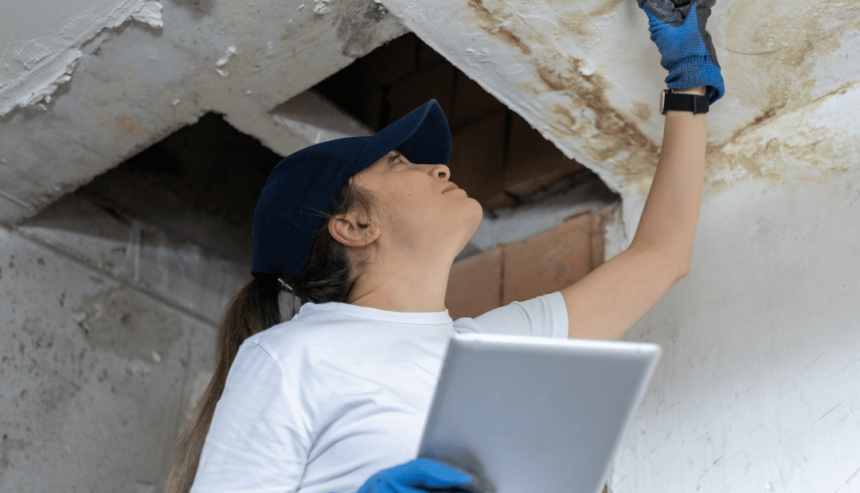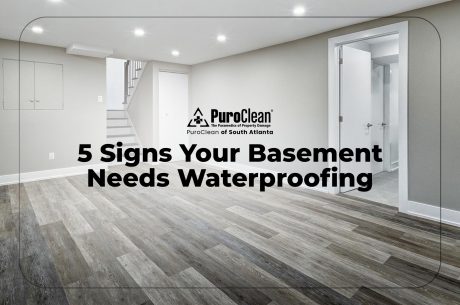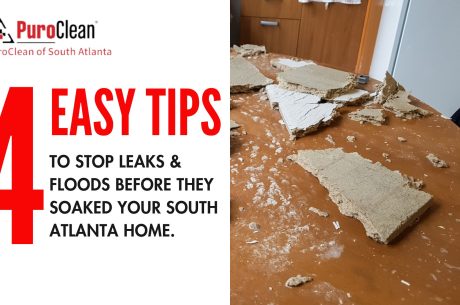Understanding Insurance Coverage for South Atlanta Homes
Home insurance policies often cover water damage, but the specifics can vary significantly from one policy to another. It’s crucial for homeowners to thoroughly review their insurance documents and understand the scope of their coverage. Generally, water damage insurance covers sudden and accidental damage, such as a burst pipe or an appliance malfunction.
Such events are typically unpredictable and can cause substantial harm if not addressed promptly. However, it typically does not cover damage from flooding or neglect, which are seen as preventable with adequate maintenance and preparation.
Types of Water Damage Covered by Insurance
- Sudden Accidents: This includes events like a broken water heater or a burst pipe. Such incidents are usually covered because they are unexpected and accidental, requiring immediate attention to prevent further damage. Knowing that your insurance covers these types of accidents can provide peace of mind and financial security during stressful times.
- Rain or Snow Damage: If rain or snow enters your home due to a roof leak caused by a storm, your policy might cover the repair costs. These weather-related damages are considered acts of nature, and insurance companies often provide coverage because they are beyond the homeowner’s control. However, it’s important to maintain your roof and gutters to ensure they are in good condition to handle severe weather.
- Overflow and Discharge: This covers water damage from overflowing sinks, bathtubs, or toilets, assuming these were accidental. Such incidents can cause significant water damage in a short amount of time, affecting floors, walls, and personal property. Prompt action and having the right insurance coverage can mitigate the impact of these events.
Types of Water Damage Not Covered
- Flooding: Damage from natural flooding is not covered under standard homeowners insurance. This requires separate flood insurance, which is crucial for homeowners in flood-prone areas.
- Neglect and Lack of Maintenance: Gradual damage due to poor maintenance, like a slow leak that has been ignored, is typically not covered. Homeowners are expected to perform regular maintenance and inspections to prevent such issues.
- Sewer Backups: Damage from sewer or drain backups generally requires additional coverage. Sewer issues can be particularly challenging, leading to unpleasant odors and potential health hazards.
Working with Water Restoration Companies
Once you discover water damage, acting quickly is key to minimizing its impact. Water restoration companies in South Atlanta specialize in cleaning up and repairing water damage, offering expertise and resources that the average homeowner may lack. They help mitigate further damage and restore your home to its original state. Partnering with a professional can ensure the job is done thoroughly and efficiently, reducing the likelihood of future issues like mold growth.
Choosing the Right Water Restoration Company
- Check Credentials: Ensure the company is licensed and insured. Look for certifications from reputable organizations like the Institute of Inspection, Cleaning and Restoration Certification (IICRC).
- Experience and Reviews: Research the company’s experience and read customer reviews to understand their reputation. A well-regarded company with positive feedback is more likely to provide quality service.
- Response Time: Quick response is crucial in minimizing damage, so choose a company that can respond promptly to emergencies. Water damage can worsen rapidly, so having a reliable company that prioritizes fast action can make a significant difference.
Navigating Property Damage Insurance Claims

Filing an insurance claim for water damage can be complex, involving multiple steps and detailed documentation. Being well-prepared and informed can streamline the process and increase the likelihood of a successful claim. Here’s how to navigate the process:
Step-by-Step Claims Process
- Document the Damage: Take photos and videos of the damage immediately after discovering it. This will serve as evidence for your claim, providing a clear record of the extent and nature of the damage. Detailed documentation can support your case and expedite the claims process.
- Contact Your Insurance Company: Report the damage as soon as possible. Provide them with the documentation you’ve gathered to initiate the claims process. Early notification is crucial, as delays can complicate the process and potentially affect your coverage.
- Understand Your Policy: Review your policy to understand your coverage limits and deductible. Knowing what your insurance covers and your financial responsibilities helps set realistic expectations for the claim. This knowledge is crucial for effective communication with your insurer.
- Work with Adjusters: An insurance adjuster will assess the damage. Ensure you provide them with all necessary information and documentation. Cooperating with the adjuster and being available for inspections can facilitate a smoother claims process.
- Get Estimates: Obtain estimates from water restoration companies to provide to your insurer. These estimates offer a professional assessment of repair costs, helping your insurer understand the financial scope of the damage. Multiple estimates can also provide leverage in negotiating a fair settlement.
- Follow Up: Stay in touch with your insurance company to ensure your claim is processed promptly. Regular communication demonstrates your commitment to resolving the issue and can keep your claim at the forefront of your insurer’s priorities. Persistence and patience are key in navigating the claims process.
Consider Additional Coverage
For areas prone to flooding, purchasing additional flood insurance can be a wise investment. This will cover damages from natural floods, which are not included in standard policies. Considering the potential impact of flooding, additional coverage provides valuable protection and peace of mind.
Conclusion
Understanding your insurance coverage and knowing how to handle water damage repairs can save you time, money, and stress. By working with reputable water damage restoration companies and staying informed about your insurance policy, you can protect your South Atlanta home from water-related disasters. For expert water removal services in Atlanta, contact our team at PuroClean of South Atlanta today!




 PuroClean of South Atlanta
PuroClean of South Atlanta